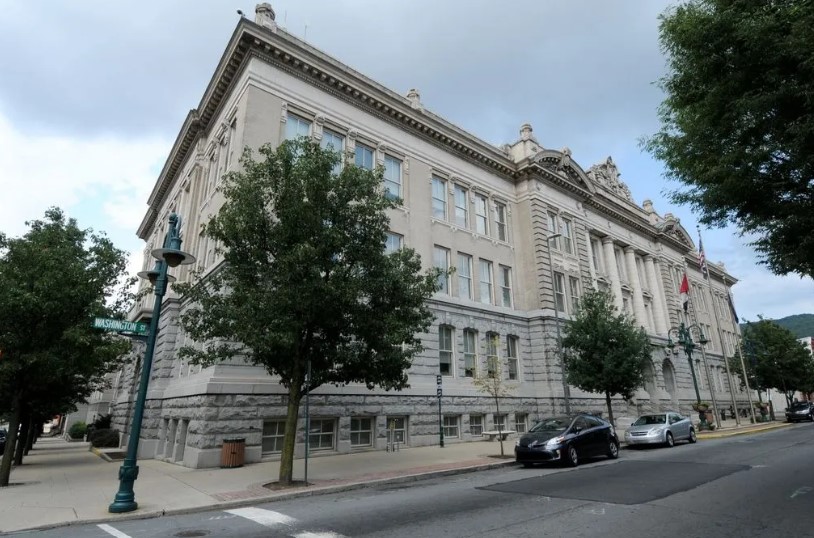Reading’s Public Works Department is proposing a nearly $10 million budget for 2026, an increase of about $600,000 over this year’s budget.
Department Director Kyle Zeiber and division leaders presented an overview of the proposal Monday at City Council’s committee of the whole meeting.
The draft budget of $9,957,250 is $637,185, or 6.84%, more than the 2025 budget of $9,320,065, they said.
The team said the rise is due to several factors, including increases in overtime pay and wages for part-time staff and climbing supply costs, plus improved accounting practices that reflect more accurate budgeting, rather than just cost increases.
Overtime costs, projected to rise to $50,000 in 2026, are driven by more frequent weather-related emergencies and city events requiring the department’s support, said Lester Kissinger, a department supervisor.
The environment has become more unpredictable in recent years, he said, resulting in flooding in city areas not previously prone to inundation.
The higher overtime costs, he said, can’t be controlled when dealing with such public infrastructure emergencies.
Kissinger noted an increase in city events requiring the departments’ support also contributes to increased overtime and operational costs.
The anticipated increase in cost of wages, the team said, is due to the city administration’s implementation of an increase in part-time wages to $18 per hour from the current rate of $15.
Officials said the change will affect all departments and reflects both regional competition and the city’s effort to retain seasonal staff.
Clean City division
Council also heard from Clean City Coordinator Steve Harrity, who presented the figures for his division, including the recycling fund.
The projected fund revenues, he said, include a $135,000 state recycling performance incentive and a proposed 3% increase in user fees for recycling services.
Residents currently pay annual recycling fees of about $64.
Recycling fees for the Reading School District will also increase 2% under a long-standing agreement, he noted.
The city will continue to seek grants to supplement operating costs, Harrity said, noting past grants paid for recycling bins, equipment and public education campaigns.
While the city’s recycling and trash rates remain competitive with nearby municipalities, he said, the recycling market has weakened since China’s National Sword policy.
Implemented January 2018, the policy banned the import of most plastic waste and other recyclables into China.
“There’s no market for recyclables right now,” Harrity said. “We process it, but there’s no market, at least in the short term.”
The division also plans to fund a new graffiti removal truck through the recycling budget. The new vehicle will replace a 2004 model that is showing its age, he said.
Sewer, wastewater systems
Council members also heard updates on the city’s sewer and wastewater systems.
City Utilities Manager Deborah Hoag said much of the focus will shift to maintenance and upgrades of underground pipes to prevent groundwater infiltration and structural deterioration.
“We want to focus more on maintaining the pipes and making sure we’re not getting groundwater in,” she said.
Hoag said the department plans to expand public education efforts with advertising campaigns about proper waste disposal and the differences between sanitary and storm sewers.
Chemical supply costs for wastewater treatment have risen sharply, with some prices quadrupling since 2020, she noted.
“We’ve had some significant issues that way,” she said, noting that staff have been working with the purchasing department to lock in better contract terms. “We’re trying to reduce the amount of chemicals through operational changes, but we don’t know that we can compensate for it completely.”
Wastewater treatment fees also include about $3 million annually for the disposal of biosolids, along with major expenses for power and personnel.
About 55% of the regional sewer fund is supported by city ratepayers and 45% by surrounding municipalities that use Reading’s regional treatment facility.
Planned capital projects include completion of a Glenside-area pump station, critical in flood-prevention, and new monitoring equipment at a north Reading-area pump station.
The wastewater division also is investing in upgrades to its supervisory control and data acquisition system, which monitors plant operations, Hoag said.
Council members and city administrators commended Zeiber and the department’s division leaders, praising their good management amid rising costs across all sectors.
Public Works has one of the most complex of the city departments’ budgets because of all the various funds, Managing Director Jack Gombach explained, noting it is also one of the largest.
Divisions include city garage and fleet maintenance, traffic engineering, streets, parks and public buildings, sewer maintenance and sewage treatment, shade trees, street paving and more, some of which are self-funded, he noted.

